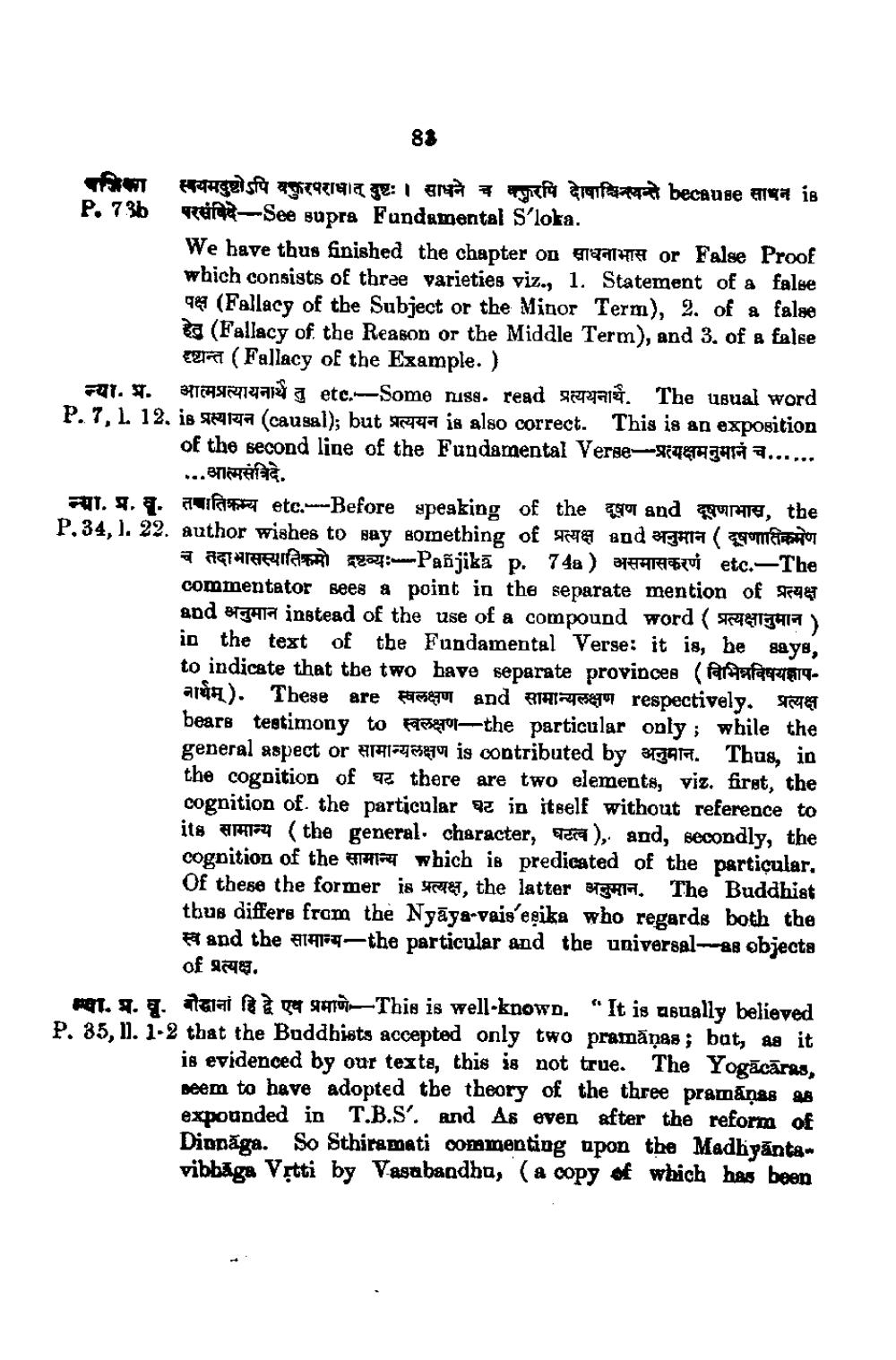________________
जिका सयमदुष्टोऽपि वरपराधात् दुष्टः। साधने च पुरपि दोषाधिनस्यन्ते because साधन is P. 736 rata-See supra Fundamental S'loka.
We have thus finished the chapter on 0714A or False Proof which consists of three varieties viz., 1. Statement of a false 999 (Fallacy of the Subject or the Minor Term), 2. of a false 80 (Fallacy of the Reason or the Middle Term), and 3. of a false EZERT ( Fallacy of the Example. )
MARIJA a etc.--Some nuss. read gerai. The usual word P.7. 1 12. is pra (causal); but ta is also correct. This is an exposition
of the second line of the Fundamental Verse-84agu a......
...BT . न्या. प्र. व. तथातिक्रम्य etc..-Before speaking of the दूषण and दूषणाभास, the P.34,1. 22. author wishes to say something of प्रत्यक्ष and अनुमान ( दूषणातिक्रमण
a acutar 22: Pañjikā p. 74a ) 241 etc. -The commentator sees a point in the separate mention of sement and अनुमान instead of the use of a compound word (प्रत्यक्षानुमान ) in the text of the Fundamental Verse: it is, be says, to indicate that the two have separate provinces (faranlat814नार्थम्). These are स्वलक्षण and सामान्यलक्षण respectively. प्रत्यक्ष bears testimony to Freeport the particular only; while the general aspect or A191577599 is contributed by BOAT. Thus, in the cognition of a there are two elements, viz. first, the cognition of the particular at in itself without reference to its 514174 (the general. character, ), and, secondly, the cognition of the #14174 wbich is predicated of the particular, Of these the former is , the latter BTSHA. The Buddhist thus differs from the Nyāya-vais'esika who regards both the
and the 414174—the particular and the universal--a8 objects
of 42e. mer. 4. q. dazi ita et SaūThis is well-known." It is asually believed P. 35, 1). 1-2 that the Buddhists accepted only two pramāņas; bat, as it
is evidenced by our texts, this is not true. The Yogācārus, seem to have adopted the theory of the three pramānas as expounded in T.B.S'. and As even after the reform of Dianăga. So Sthiramati commenting upon the Madliyánta. vibbāga Vitti by Vasabaadhu, (a copy of which has been




